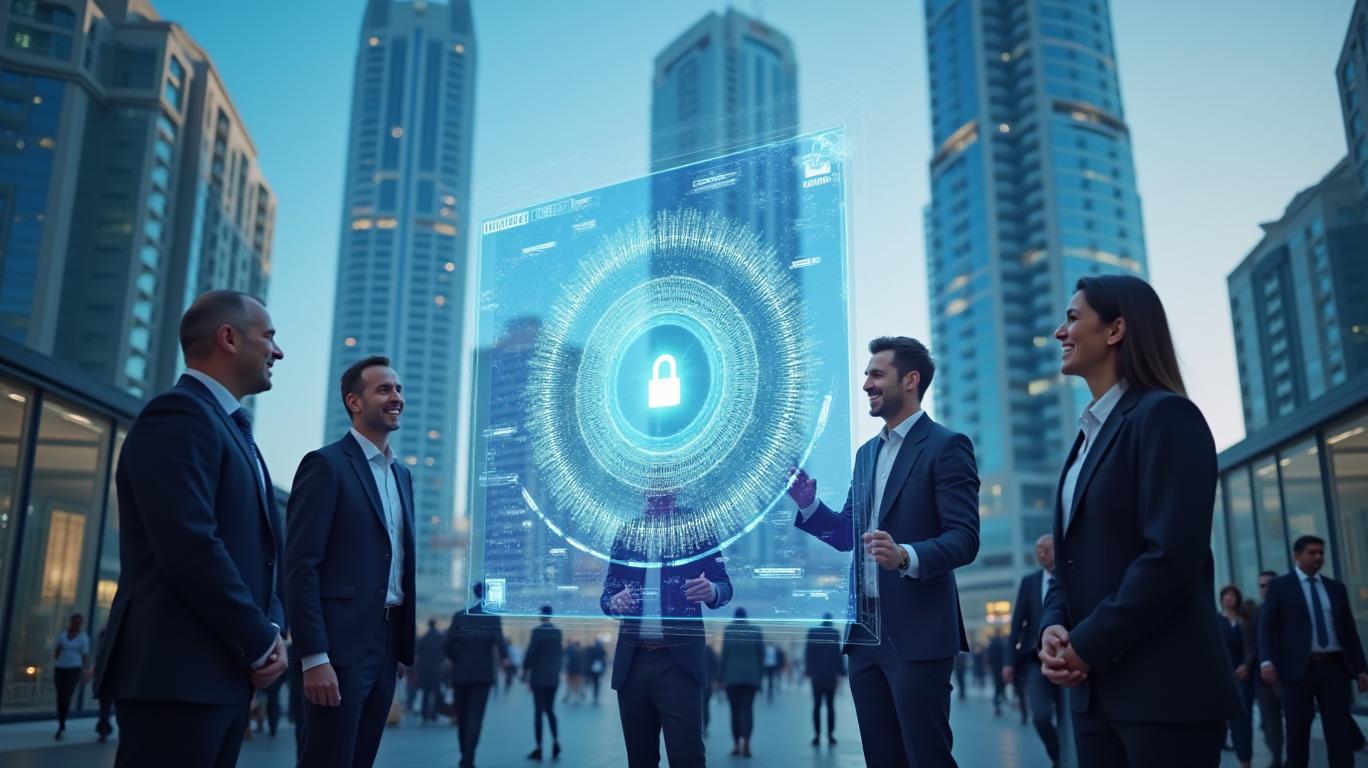Dubai Tokenizes Real Estate Assets with Blockchain, Boosts Accessibility by 50%
Dubai is making significant strides in modernizing its real estate sector by integrating blockchain technology with traditional property deeds. The Dubai Land Department (DLD) has initiated a tokenization program, marking the first such endeavorEDR-- in the Middle East. This pilot project aims to leverage blockchain innovation to streamline real estate transactions and attract a broader range of investors.
The DLD, in collaboration with the Dubai Future Fountain (DFF) and the Virtual Assets Regulatory Authority (VARA), is pioneering the tokenization of real estate assets. This process involves converting physical property into digital tokens recorded on blockchain technology, which simplifies buying, selling, and investing in real estate. Marwan Ahmed Bin Ghalita, Director General of DLD, emphasized that this technological advancement is crucial for driving fundamental change in the real estate sector, making it more accessible and efficient.
One of the key benefits of this initiative is the facilitation of fractional ownership in real estate projects. Traditionally, multiple owners investing in a single project has been a complex process. However, blockchain technology simplifies this by allowing for low-threshold investments, thereby democratizing finance and making real estate more accessible to a wider audience. This approach not only increases asset liquidity but also opens up the market to smaller investors who may have previously been excluded due to high entry barriers.
The pilot scheme also aims to attract external investors to Dubai by providing a user-friendly and legally backed process. This aligns with the Dubai Economic Agenda D33, which focuses on adopting digital technology to position the city as a global innovation hub. The project is part of the 'REES' Real Estate Innovation Initiative, designed to attract diverse technology firms and enhance property sector innovation, transparency, and governance.
Despite the potential benefits, the tokenization process faces challenges, particularly regarding land use after fractional property division. However, the DLD is committed to overcoming these obstacles and refining the project based on the outcomes of the pilot launch. The department recognizes that crypto adoption involves more than just accepting digital assets as payment; it also enhances business opportunities, makes markets more accessible, and provides secure and transparent ways to transfer assets.
In summary, Dubai's integration of blockchain technology with its property market represents a significant step towards modernizing the real estate sector. By tokenizing real estate assets and facilitating fractional ownership, the DLD aims to make the market more accessible, efficient, and transparent. This initiative not only aligns with Dubai's broader economic agenda but also positions the city as a leader in blockchain innovation. The success of this pilot project will pave the way for full-scale implementation, further enhancing Dubai's real estate sector and attracting a global pool of investors. 
Quickly understand the history and background of various well-known coins
Latest Articles
Stay ahead of the market.
Get curated U.S. market news, insights and key dates delivered to your inbox.



Comments
No comments yet